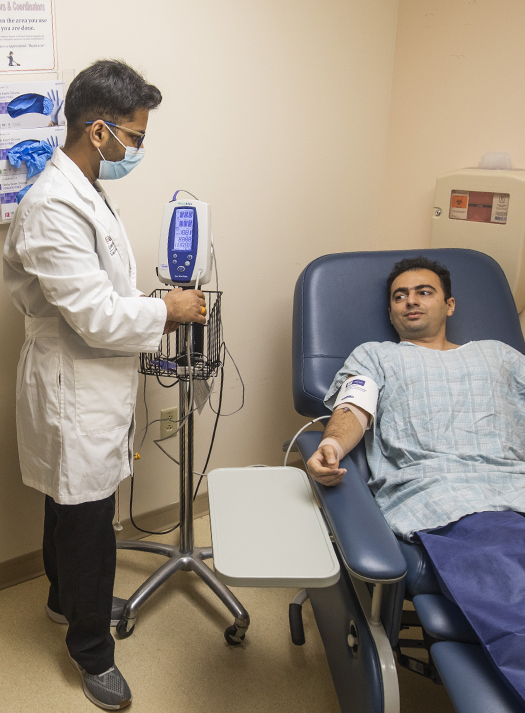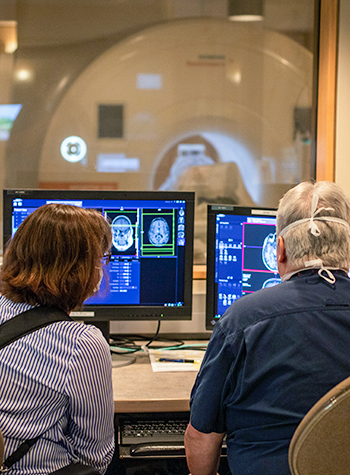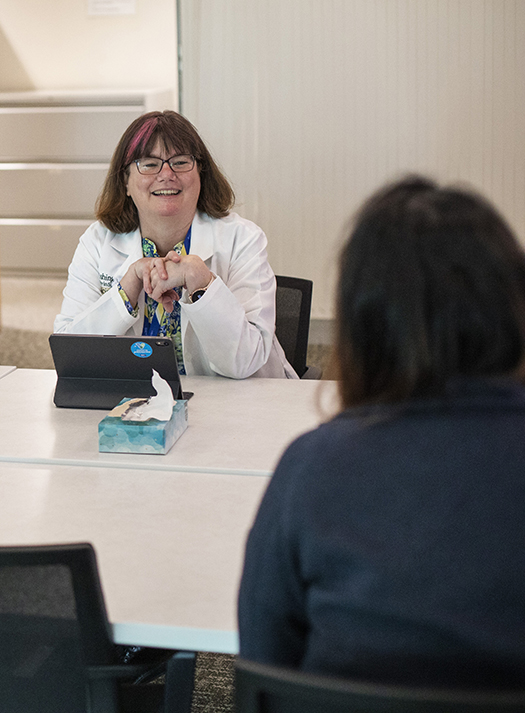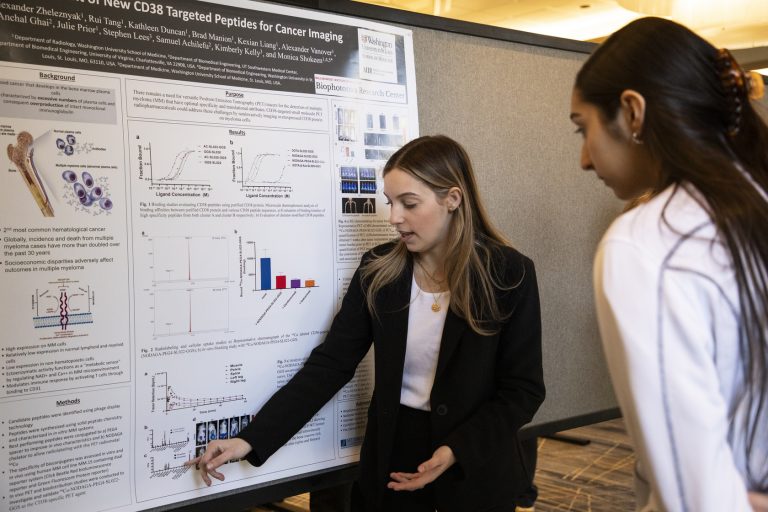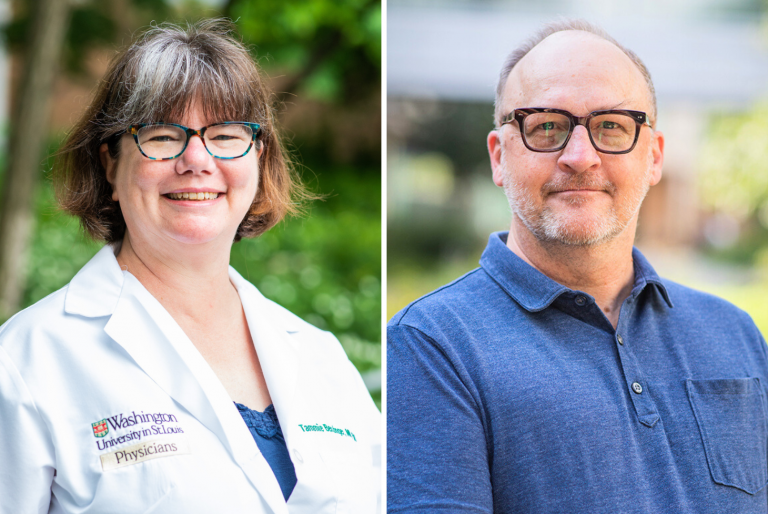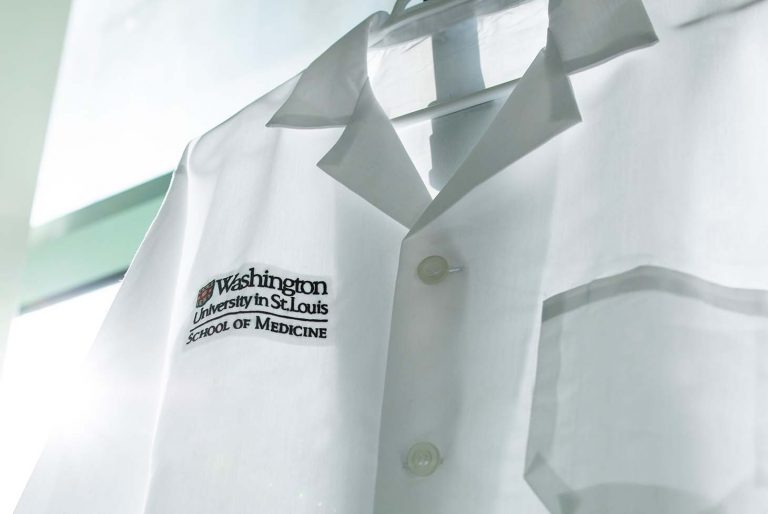Benzinger Lab
Our People
No employees matched your search
No employees matched your search
Application Developer
Sarah Keefe
Business & Technology Application Analyst
Shaney Flores
Clinical Research Coordinator
Lidya Abraha
Shafiq Alsayed Allaham
Alicia Craycroft
Emina Dzananovic
Alina Dzeko
LaKisha Lloyd
Lucas Paulson
Jayashree Rajamanickam
Edita Sabaredzovic
Kelly Wiest
Clinical Research Specialist
Nancy Hantler
Clinical Research Study Assistant
Hope Shimony
Clinical Trials Manager
Joyce Nicklaus, RN
Kelley Jackson
Imaging Project Manager
Russ Hornbeck
Neuroimaging Engineer
Jalen Scott
Hunter Smith
Neuroimaging Research Technician
Kaitlyn Dombrowski
Jacqueline Rizzo
Project Coordinator
Jessica Banks
Project Manager
Christine Pulizos
Regulatory Support & Compliance Manager
Deborah Koudelis
Research Lab Manager
Steve Jarman
Research Technician
Ashlee Simmons
Norah Vii
Senior Scientist
Gengsheng Chen, PhD
Parinaz Massoumzadeh, PhD
Graduate Students
Stephanie Doering
Undergraduate Students
Rohan Agrawal
- Damola Adedokun
- Garima Agrawal, MD
- Tyler Blazey, PhD
- Charles Chen, PhD
- Lindsey Ercole, MD
- Brian Gordon, PhD
- Amrita Hari-Raj, MD
- Bharathi Jagadeesan, MD
- Lauren Kim, MD
- Lauren Koenig
- Eric Klawiter, MD
- Laura Marple
- Joseph Mettenburgh, MD, PhD
- Shruti Mishra, MD
- Marina Mityul
- Marina Nguyen, MD
- Farzaneh Rahmani, MD
- Dhanashree Rajderkar
- Stephanie Schultz, PhD
- Liang Wang, PhD
- Aiad Zaza, MD
Translational Imaging in Radiopharmaceutical Sciences
Mallinckrodt Institute of Radiology (MIR) at Washington University in St. Louis has multiple positions available for the postdoctoral training program Translational Imaging in Radiopharmaceutical Sciences (TIRS). Six concurrent T32 slots are currently funded. Applications are accepted on a rolling basis as funds are available.
The program is funded by an NIH/NIA Postdoctoral T32 Institutional Training Grant (NIA T32 AG078117; Program Directors: Vijay Sharma, PhD; Tammie Benzinger, MD, PhD; Zhude (Will) Tu, PhD).
The T32 TIRS programis a multidisciplinary initiative to train the next generation of PET molecular imaging scientists to design, develop and translate diagnostic agents for imaging of neurodegenerative diseases and Alzheimer’s Disease and Related Dementias (ADRDs). To accomplish this novel training mission, the program brings leading scientists from 12 departments of Washington University on a single platform to provide proposed multidisciplinary training. After participating in the program, trainees will have advanced skills in molecular neuroimaging research and will be on a pathway to become leaders in this branch of neuroscience.
Each trainee will be paired with two mentors: one basic science, and one clinical/translational mentor. Trainees will also participate in ongoing seminars and an annual retreat. Funding is available to cover salary and benefits for the trainees.
- PhD (or equivalent) and/or MD/PhD degree with strong background in chemistry and neuroscience
- Research must be relevant to Alzheimer’s Disease and Related Dementias (ADRDs)
- Dedicated 75% protected time towards the research project
- Must have future plans of submitting extramural grant applications
- Applicants must be U.S. citizens or permanent residents (NIH requirement)
- The duration of the award is 2 years, with possible extension.
- An annual progress report on funding, grant submissions and publication track record is required.
To be considered for the TIRS program, you must complete the Online Application, which includes the following:
- An NIH-style biosketch
- A brief statement (300–500 words) of career goals
- Your proposed two mentors
If you have any questions or would like additional information, please email project administrator Parinaz Massoumzadeh, PhD.
Clinical Advanced Neuroimaging Fellowship
The Knight Alzheimer’s Research Imaging (KARI) Program at Washington University School of Medicine is seeking MD or MD/PhD candidates for a Clinical Research Fellowship in Neuroimaging.
The KARI fellow will conduct translational imaging research and clinical trials in Alzheimer’s disease. This includes clinical training in the diagnosis and evaluation of dementia using magnetic resonance imaging (MRI) and positron emission tomography (PET), as well as didactic and experiential training in imaging research methods, imaging biomarkers in clinical trials of dementia, and ethical conduct of research. Fellows will gain knowledge in the basic and clinical science of dementia and neurodegeneration, MRI and PET physics, and experience with novel PET tracers in neurodegeneration, including molecular imaging with both metabolic, amyloid, and tau agents. Special emphasis will be on the role of imaging biomarkers in clinical trials, including study design, human subjects protection, and regulatory submissions for human studies. In addition to imaging of dementia, the KARI Program is closely linked to world-renowned collaborators involved in clinical, cerebrospinal fluid (CSF) biomarker, informatics, and genetics research in Alzheimer’s disease. Fellows are encouraged to be involved in these collaborations in order to develop their own expertise and independent research.
Fellows are encouraged to take courses from the Washington University Clinical Research Training Center with an opportunity to pursue a Graduate Certificate or Masters Degree. Up to 50% tuition reimbursement is provided. Travel to present research at one national or international meeting (up to $2000) is provided. For fellows who have completed an ACGME accredited residency or fellowship, up to 33% clinical effort may potentially be arranged.
- Interested in pursuing a career in Alzheimer’s disease research for a one-to-two year commitment
- Research must be conducted within a two-year time frame with reportable findings
- Graduate of an ACGME-accredited training program (radiology, nuclear medicine, neurology, pathology or psychiatry preferred)
- U.S. citizen, permanent resident or J1 visa
- Have a valid U.S. medical license
Interested candidates can email their CV to Tammie Benzinger, MD, PhD.
Student Opportunities
Students in the Benzinger Lab receive training in the diagnosis and evaluation of dementia or brain tumors using quantitative imaging with magnetic resonance imaging (MRI) and positron emission tomography (PET), as well as didactic and experiential training in imaging research methods, imaging biomarkers and ethical conduct of research.
Students are expected to actively participate in weekly lab meetings and to formally present their research to the Neuroimaging Labs Research Center (NIL-RC) at the conclusion of their research block.
Graduate students and postdoctoral fellows are accepted through Washington University’s Division of Biology and Biomedical Sciences and McKelvey School of Engineering.
One-year and two-year positions are available for medical students or recent undergraduates. Students are encouraged to take classes from the Institute of Clinical and Translational Sciences, leading to a masters degree or certificate.
Interested candidates can email their CV to Russ Hornbeck.
Summer students participate in the Summer Program of Imaging in Neuroscience (SPIN) discussion series. SPIN started as a Benzinger Lab journal club in 2013 and has evolved into a weekly series of discussions and guest lectures.
- Applications are accepted in January and February, with selection taking place in March and April
- Academic year positions for the fall semester are filled first from within the pool of summer students
- Lab rotations for the spring term are available preferentially to students continuing from the previous term or students who have been accepted for the summer program
- Priority is given to students who have previously worked in the lab and to students who have external funding
Potential sources of funding include: MIR Summer Research Program, Siteman Cancer Center Summer Program, DBBS Summer Program, BioSURF, uSTAR, and MSTAR.
If you are an interested candidate or for more information, email your CV to Russ Hornbeck.
Job Opportunities
Visit the Opportunities page to find open positions.
To be considered for future openings, email your CV to Tammie Benzinger, MD, PhD.












